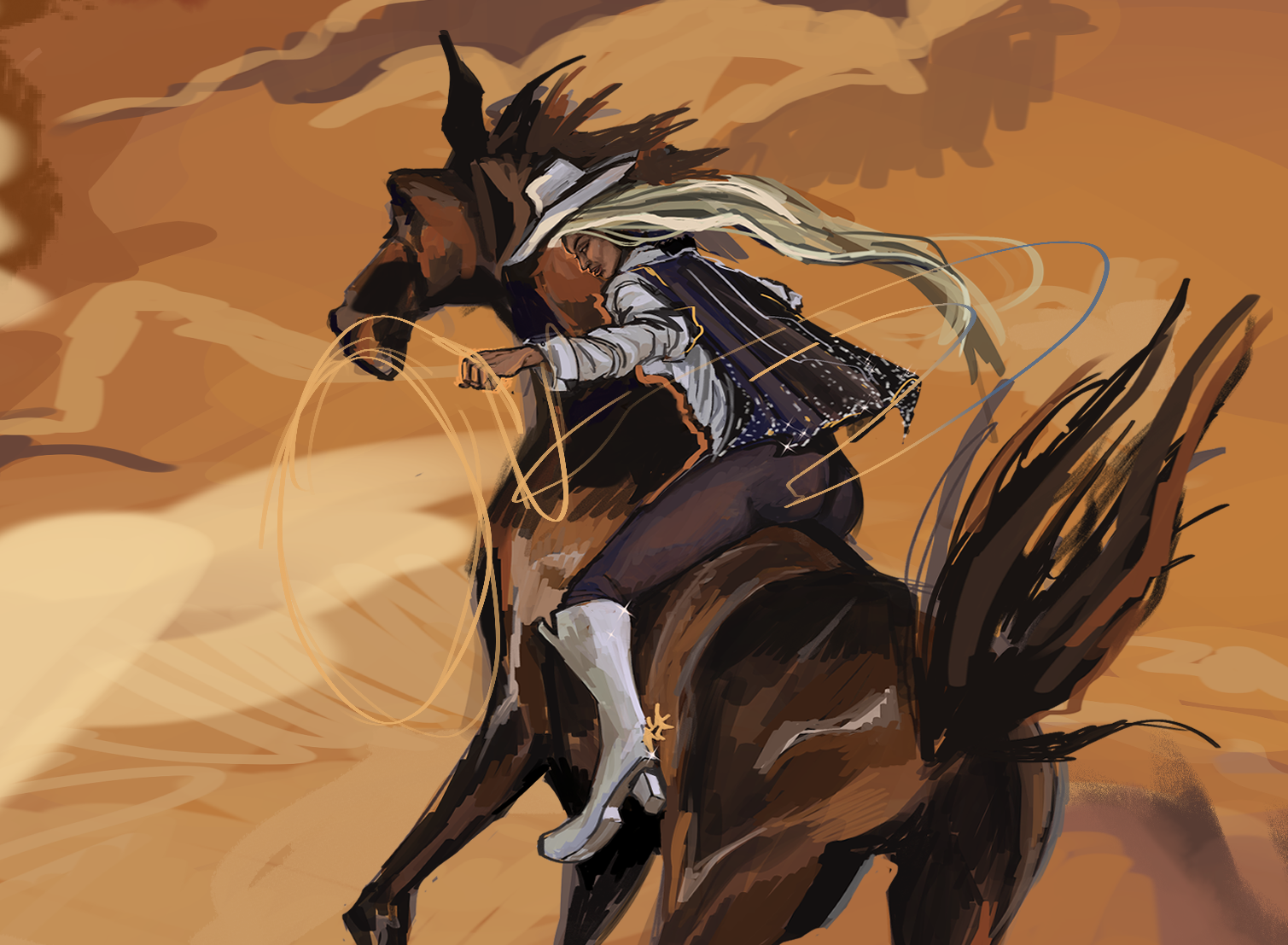We should be accustomed to surprises on Super Bowl Sunday by now, both on and off the field. And yet, Beyoncé—who’s no stranger to the surprise drop—still managed to shock fans and football dads alike with a jaw-dropping double announcement: two new country singles and the upcoming release of her next studio album, Act II (2024).
Going into the big game, fans were already speculating whether she had more tricks up her sleeve (or rather, her bedazzled glove). After all, Verizon had already been teasing a Beyoncé feature for their halftime ad, and it wouldn’t have been the first time she’d gone big at the Super Bowl. Her 2016 Beychella-inspired performance of “Formation” alongside Bruno Mars had most viewers forgetting she was only a guest at Coldplay’s halftime show.
Staying true to her penchant for surprises, Beyoncé’s two new singles, “TEXAS HOLD ‘EM” and “16 CARRIAGES,” embody the superstar’s experimental spirit while departing from her past discography. Her 2022 exploration of house music on RENAISSANCE was a project steeped in queer Black joy that arguably sparked a mainstream resurgence of the genre. One-and-a-half years later, Beyoncé is taking on a different genre much closer to the Texas native’s roots: country.
Beyoncé has never shied away from flaunting her Houston pride, most evident in the cowgirl-chic disco aesthetic of the “Renaissance World Tour” and her first rodeo with country on the experimental and genre-hopping Lemonade (2016) with “Daddy Lessons.”
On “TEXAS HOLD ‘EM,” Beyoncé gives audiences a taste of country music’s capacity to foster a sense of shared euphoria and call everyone to the dance floor. The single opens with a playful banjo melody that builds in rhythm and is complimented by the soothing raspiness of Beyoncé’s vocals. The backing instrumental remains lighthearted and bright, consisting of the steady strum of a guitar and a gentle drum beat—a faithful homage to the folk influences where country finds its roots. Beyoncé warbles a call and response with “This ain’t Texas / Ain’t no hold ‘em,” tapping into the joyful, infectious spirit of country to invite the listener to dance without reservation.
The vocals and the instrumentals crescendo in equal measure at the song’s climax before stripping down to a whistled melody. Beyoncé returns in a soft, near-whisper: “And I’ll be damned if I cannot dance with you / Baby, pour that sugar and liquor on me, too.” The track is like a little bubble of Texas, the honey-sweet ending perfectly encapsulating the pleasant and homey characteristics of country.
Reflecting country’s multifaceted nature and sentimental qualities, Beyoncé moves away from the cheery country subgenre towards more emotional storytelling on “16 CARRIAGES.” Rumored to have been in the vault for a couple of years, this single takes advantage of Beyoncé’s poetic lyricism to recount her life story, making the track a melancholic and emotionally evocative listening experience like no other.
Fans have theorized that “16 CARRIAGES” is Beyoncé’s reflection on her ascent to fame at such a young age, with the title being a reference to her big break with Destiny’s Child at just 16 years old. Referring to her early years spent in the spotlight and the loss of her childhood, Beyoncé muses, “At 15, the innocence was gone astray / Had to leave my home at an early age.” Although she had made a name for herself at an impressively young age, the achievement came at the cost of her privacy and her youth.
As the song progresses, Beyoncé shifts the focus to her current struggles, emphasizing the heavy weight of her career: “Goin’ so hard, now I miss my kids / Overworked and overwhelmed.” Despite starting from the bottom, Beyoncé has since achieved legendary status, and yet her quest to produce innovative and moving music is fraught with long-lasting battles and internal strife.
The track ends on a powerfully inspiring note. Regardless of the struggles she faces, Beyoncé will overcome all to leave her mark on the world: “The legacy, if it’s the last thing I do / You’ll remember me ’cause we got somethin’ to prove.” Many may assume that after decades in the game, Beyoncé’s reign is about to end, but mark her words—she won’t stop anytime soon.
No stranger to collecting awards, the 32-time Grammy winner broke records on multiple charts with the release of “TEXAS HOLD ‘EM.” Not only was it the first time a woman went No. 1 simultaneously on both the Billboard Hot Country Songs and R&B/Hip Hop Songs charts, but it was also the first time a Black woman debuted at the top spot on the country charts. For as long as she’s been a musical powerhouse, Beyoncé has showcased her versatility through her ability to move from genre to genre, consistently writing songs that are universally well-received, and her latest singles are no exception.
Beyoncé’s 2024 turnaround from house to hoedown may feel jarring, but the move strikes a similar chord as she aims to return country music to its Black roots. Similar to genres like house, rock, and hip-hop, country music originates from an agglomeration of Black musical traditions, specifically ballads, the blues, and gospel. In his 2019 documentary Country Music, Ken Burns shares the stories of several Black country music pioneers whose legacies, although diminished by mainstream perceptions of country music as a “white” genre, are honored by everyday Black country artists and big names like Lil Nas X on his breakout single “Old Town Road” and, now, Beyoncé.
The tracks give fans a long-desired glimpse into what Beyoncé promises to deliver on Act II. From the upbeat, line-dancing melody of “TEXAS HOLD ‘EM” to the heartfelt ballad of “16 CARRIAGES,” Beyoncé signals her hope to give country the same tender love and care she gave house.
With the March 29 release date drawing ever closer, Beyoncé has made it clear that the next act of her three-act project will be an authentically country experience. While Act I: RENAISSANCE was a love letter to the Black and Brown queer roots of ballroom, Act II looks to be a triumphant transition to the smooth melodies and melancholic poetry of Black country. And to that, we say “yee-haw.”





